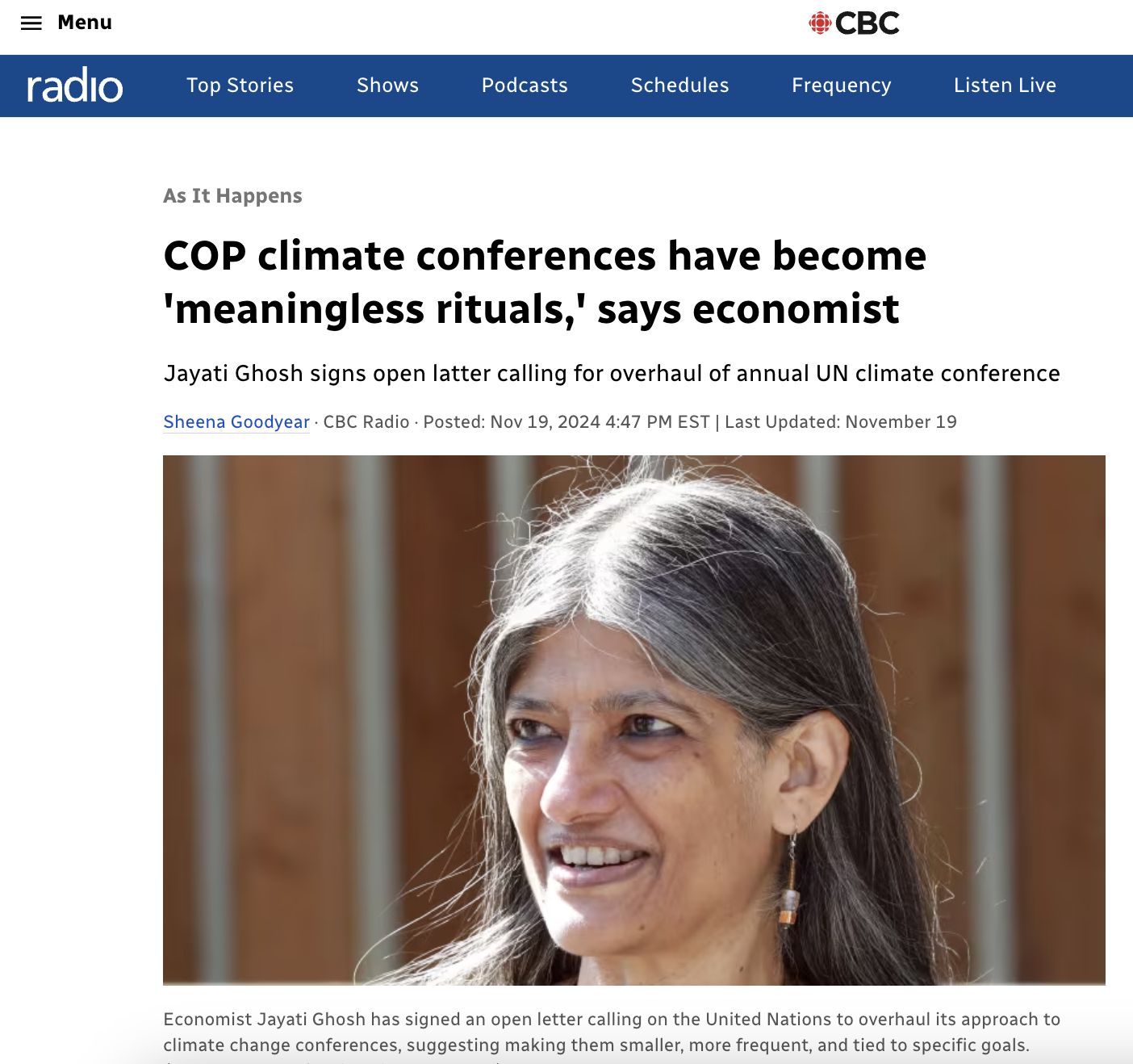by Vijay Kolinjivadi – Vijay Kolinjivadi is a post-doctoral fellow at the Institute of Development Policy at the University of Antwerp.
Excerpt:
These sweeping and unprecedented measures taken by the government and international institutions could not but make some of us wonder about another global emergency that needs urgent action – climate change.
The two emergencies are in fact quite similar. Both have their roots in the world’s current economic model – that of the pursuit of infinite growth at the expense of the environment on which our survival depends – and both are deadly and disruptive.
In fact, one may argue that the pandemic is part of climate change and therefore, our response to it should not be limited to containing the spread of the virus. What we thought was “normal” before the pandemic was already a crisis and so returning to it cannot be an option.
The common roots of COVID-19 and climate change
…
This same process is also responsible for COVID-19 and other outbreaks. The need for more natural resources has forced humans to encroach on various natural habitats and expose themselves to yet unknown pathogens.
At the same time, the growth of mass production of food has created large-scale farms, where massive numbers of livestock and poultry packed into megabarns. As socialist biologist Rob Wallace argues in his book Big Farms Make Big Flu, this has created the perfect environment for the mutation and emergence of new diseases such as hepatitis E, Nipah virus, Q fever, and others.
The US Centers for Disease Control and Prevention (CDC) estimates that three out of four new infectious diseases come from human-animal contact. The outbreaks of Ebola and other coronaviruses such as MERS, for instance, were triggered by a jump from animal to human in disturbed natural habitats.
In the case of COVID-19, it is suspected that the virus was transmitted to humans at a “wet market” in the city of Wuhan, where wildlife was being sold.
…
Climate change is happening
Although both COVID-19 and climate change are rooted in the same abusive economic behaviour and both have proven to be deadly for humans, governments have seen them as separate and unconnected phenomena and have therefore responded rather differently to them.
…
The rapid response to COVID-19 around the world illustrates the remarkable capacity of society to put the emergency brake on “business-as-usual” simply by acting in the moment. It shows that we can take radical action if we want to.
Lockdowns across the world have already resulted in a significant drop in greenhouse gas emissions and pollutants. In China, for instance, the lockdown caused carbon dioxide to drop by at least 25 percent and nitrogen dioxide by 37 percent.
Taking action
Yet, this temporary decrease in greenhouse gases should not be a cause for celebration. The fact is that as a result of the lockdowns, millions of people have already lost their jobs and billions will probably struggle amid the economic downturn the outbreak is causing.
While some have called for climate change to be just as drastic as the one undertaken in response to the COVID-19 pandemic, it should not be. We need a just climate transition which ensures the protection of the poor and most vulnerable and which is integrated into our pandemic response. This would not only reverse the climate disaster we are already living in but also minimise the risk of new pandemics like the current one breaking out.
The just climate transition should involve economic reforms to introduce “planned degrowth” that puts the wellbeing of people over profit margins. The first step towards that is ensuring the stimulus packages that governments are announcing across the world are not wasted on bailing out corporations.
We must avoid at all costs a situation where unscrupulous big businesses and state actors are allowed free reign to reinforce appalling global inequality while the rest of civil society is quarantined at home.
We should demand that government funds are instead allocated to decentralised renewable energy production in order to start implementing the Green New Deal and create new meaningful jobs amid the post-COVID-19 economic crisis. In parallel, we should ensure the provision of universal healthcare and free education, the extension of social protection for all vulnerable populations and the prioritisation of affordable housing.
The current response to COVID-19 could help usher in some of these changes. It could get us accustomed to lifestyles and work patterns that minimise consumption. It could encourage us to commute and travel less, reduce household waste, have shorter work weeks, and rely more on local supply chains – i.e. actions that do not hurt the livelihoods of the working classes but shift economic activity from a globalised to a more localised pattern.
Obviously, the conditions surrounding COVID-19 are not ideal, but the rapid and urgent actions in response to the virus and the inspiring examples of mutual aid also illustrate that society is more than capable of acting collectively in the face of grave danger to the whole of humanity.


